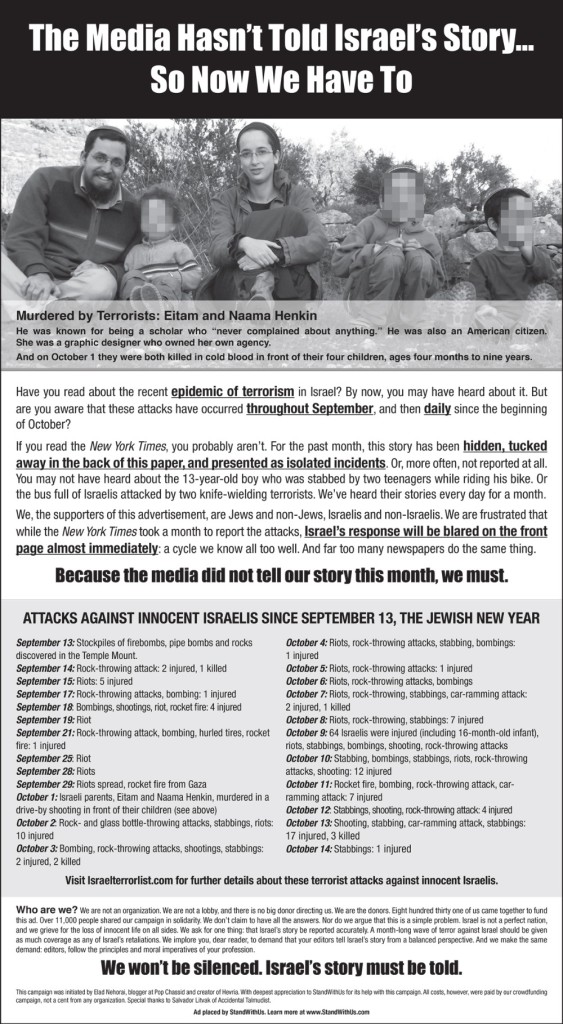Words of the Week
“It is the job of those who care for Israel to understand what it means to us: a political entity torn up by its own internal contradictions and let down by its leaders; a vulnerable state surrounded by enemies and buffeted by religious fanaticism; or merely a home for Jews, young and old, for whom a bus ride to school or a walk to the market should not be a life or death proposition.”
Source: Andrew Silow-Carroll, “Zionist Whiplash” (New Jersey Jewish News)

